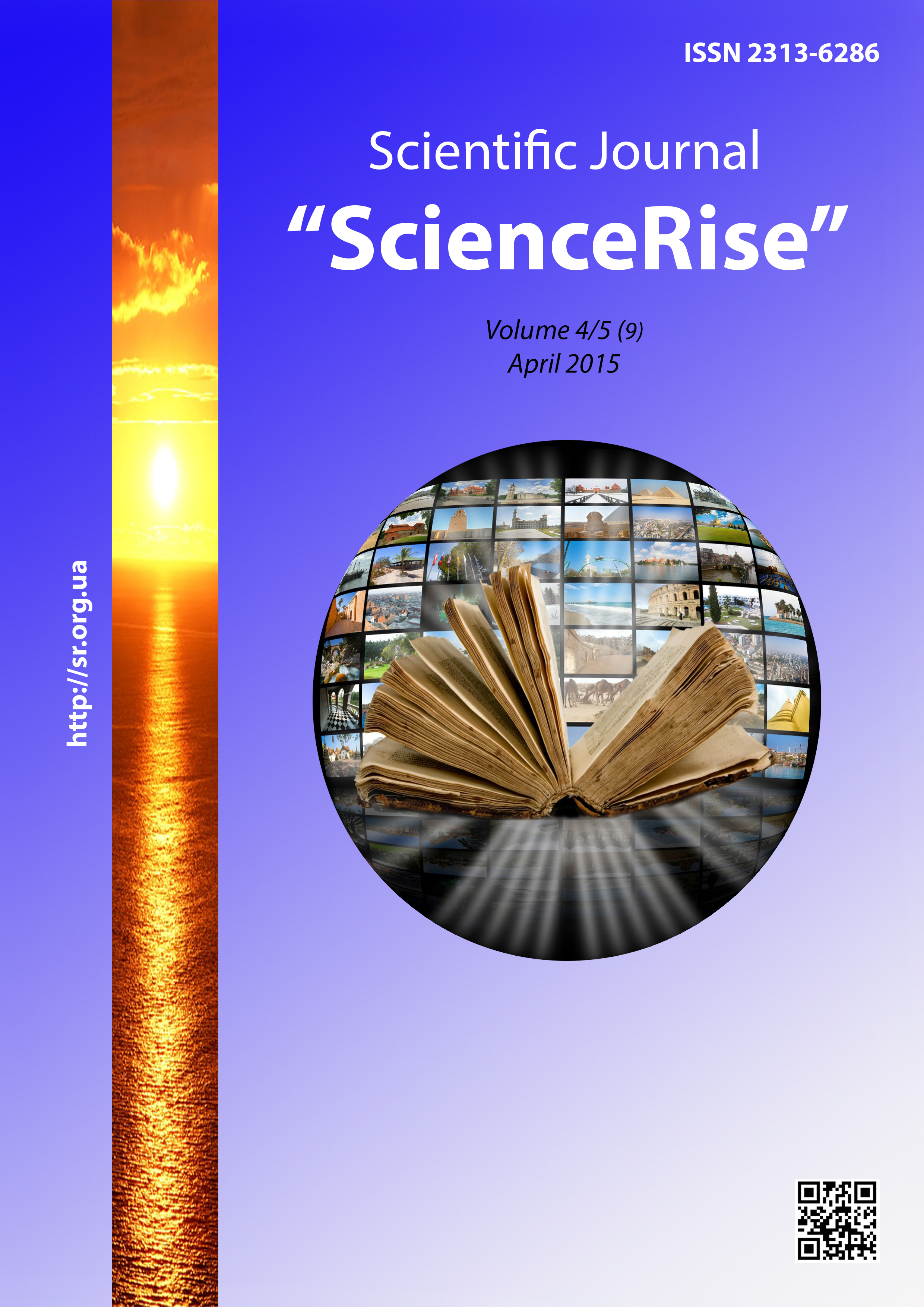Technologies and tools of open postgraduate pedagogical education
DOI:
https://doi.org/10.15587/2313-8416.2015.41401Keywords:
organizational and pedagogical conditions, information and methodological support, platform eFront, open postgraduate pedagogical educationAbstract
The basics of technique of information and methodological support of educational process in the training of teachers in postgraduate pedagogical education system are considered in the article. An essence of the concept of organizational and pedagogical conditions is analyzed. The basic technologies and tools of postgraduate pedagogical education in the training of teachers in distance learning are shown
References
Bykov, V. Yu. (2008). Modeli organizacijny`x sy`stem vidkry`toyi osvity` [Models of the open education organizational systems]. Atika, 450.
Semenova, A. V. (Ed.) (2006). Slovnyk-dovidnyk z profesiynoyi pedahohiky [Glossary Directory of Professional Pedagogy]. Odessa: Pal’mira, 272.
Kostyuchenko, K. Ye. (2011). Pedagogichni umovy` formuvannya racional`no-kry`ty`chnogo my`slennya u majbutnix uchy`teliv u procesi vy`vchennya psy`xologo-pedagogichny`x dy`scy`plin [Future teachers have pedagogical terms of forming of the rationally-critical thinking in the process of study of psychological and educational disciplines]. Kirovograd State Pedagogical University Vynnychenko. Kirovograd, 20.
Fedorova, O. F. (1970). Nekotorye voprosy aktivizatsii uchashchikhsya v protsesse teoreticheskoho i proizvodstvennoho obucheniya [Some issues of activation of students in the theoretical and industrial training]. High Scholl, 301.
Panina, T. S., Dochkin, S. A., Kleczov, Yu. V. Urovni informatcionno-kommunikatcionnoi` kompetentnosti pedagogicheskikh rabotnikov [Levels kommunykatsyonnoy information and pedagogical competencies of employees]. Available at: http://krirpo.ru/anketa/etc.htm?id=744
Andrushchenko, V. P., Zyazyun, I. A., Kremen', V. H. (2003). Neperervna profesiyna osvita: filosofiya, pedahohichni paradyhmy, prohnoz [Continuing professional education: philosophy, pedagogical paradigms, prognosis]. Kyiv, Scientific thought, 853.
Oliynyk, V. V., Hravit, V. O., Lyakhots'ka, L. L. (2010). Samostiyna robota slukhachiv u protsesi pidvyshchennya kvalifikatsiyi [Independent work of learners during training]. Kyiv: UMO, 44.
Myshchyshen, A. V. (2011). Moodle yak sy`stema dy`stancijnogo upravlinnya navchannyam pry` pidvy`shhenni kvalifikaciyi [Moodle as a system of remote-control studies at in-plant training]. Messenger of Postgraduate Studies, 5 (18), 96–105.
Downloads
Published
Issue
Section
License
Copyright (c) 2015 Антон Васильович Мищишен

This work is licensed under a Creative Commons Attribution 4.0 International License.
Our journal abides by the Creative Commons CC BY copyright rights and permissions for open access journals.
Authors, who are published in this journal, agree to the following conditions:
1. The authors reserve the right to authorship of the work and pass the first publication right of this work to the journal under the terms of a Creative Commons CC BY, which allows others to freely distribute the published research with the obligatory reference to the authors of the original work and the first publication of the work in this journal.
2. The authors have the right to conclude separate supplement agreements that relate to non-exclusive work distribution in the form in which it has been published by the journal (for example, to upload the work to the online storage of the journal or publish it as part of a monograph), provided that the reference to the first publication of the work in this journal is included.

